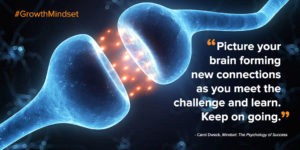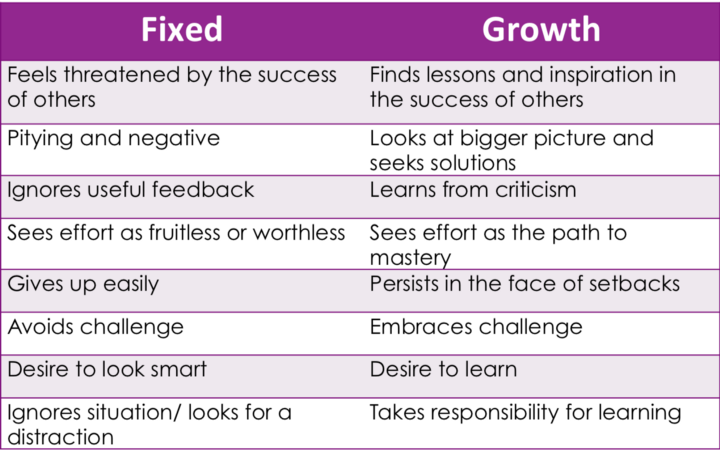Your Mindset — Are You Finished Before You Even Start?
Over the next two weeks, I’m going to go through some psychological points made by one of my new heroes, Carol Dweck. I will introduce these points, how they relate to us, and how they can help us.
Mind over matter. Pretty simple phrase. But what does it mean? What does it REALLY mean? Sure, most of us are aware that our mental outlook and attitudes toward learning affect everything we do. …but to what extent does our control of our thought processes really affect the things we do?
Are we even aware of how many times we’re letting our attitudes and dispositions sabotage us or hold us back from bettering ourselves? If you could learn strategies that would be conducive to enhancing our lives or increasing your potential, would you put them to practice?

Before we begin, let me say:
My passion is helping people get the most out of themselves through physical training and athletic successes. My belief is that these accomplishments will then also help them in their “civilian lives.” So this blog entry is focused on how people can achieve more and expand their boundaries, both in the gym and in the office. To the right are some of my clients that I’ve had the joy of helping improve themselves. I wrote about them in my article, Why I’m a Personal Trainer.
And now back to business. How could our brain help us or hurt our ability to succeed in all of our life adventures? This topic intrigues me because I feel that training emulates life, and visa versa. I think I’ve subconsciously had this notion for a long time, but it wasn’t until I heard of Carol Dweck and her research on motivation, personality, and development that my suspicions were confirmed that most of are not aware of the extent to which THE MIND truly is PRIMARY!
Who is Carol Dweck? A researcher from Stanford University that has made a name for herself through her wide breadth of psychology research in many different forms including: personality, social, and developmental. As Malcolm Gladwell said, “By all rights her appeal should transcend academia.” Her talk on Ted Talks is one of the top 5 with well over 5 million views.
I think her appeal transcends academia as well, which is exactly why I want to bring her findings to you with my thoughts on how they relate to fitness:
Fixed vs. Growth Mentality — “I can’t do it” vs “I can’t do it YET”
Fixed Mindset — This is a finite way of thinking that we either got it or we don’t got it. Having a fixed mindset means that our approach to tasks are based on the idea that we were either born with the talent, smarts, and ability to do something or we weren’t, no matter how hard we work for it or how much we want it.
Growth Mentality — This is the thinking that, with the right strategies and support, we can achieve our goals and shape our capabilities.
The “Fixed Mindset” is a double-edged sword…it can be detrimental if you have the talent or skill and can be especially bad if you feel you don’t have the requisite skills.
Let me explain. As far as training is concerned, there are a lot of movements that will not come easy to you. If I show you how to do something and you can’t get it right off the bat, your initial reaction might be to say, “I can’t do this” and quit right then and there. So that’s the one edge of the sword, just quitting because you don’t have a natural proclivity for a movement or skill.

On the other hand, let’s say you DO have a natural-born level of physical ability. And, yes, some people ARE actually born with natural talents and physical attributes that makes some athletic activities easier for them, just like some people are more naturally talented at drawing or singing. However, the problems start when you rely solely on these natural talents, and stop trying altogether. Or worse yet, you think that these things are supposed to come so easily to you, that you’ll make yourself look bad if people can see you trying! Case in point, when the United Kingdom’s director of talent started feeling that his players weren’t reaching their full potential, this is what he found.
“British soccer culture held that star players are born, not made. If you buy into that view, and are told you’ve got immense talent, what’s the point of practice? If anything, training hard would tell you and others that you’re merely good, not great.” — Tony Faulkner
The flip side of fixed mentality is growth mentality. This is the thinking that we can continue to learn how to do something, and the effort we put into practicing and learning will continue to make us better at this thing. People with this mindset tend to look at problems as challenges rather than roadblocks. Carol Diener, who works with Dweck, put it this way, “Failure is information — we label it failure, but it’s more like, ‘This didn’t work, I’m a problem solver, and I’ll try something else.’”
Albert Einstein — “It’s not that I’m smart, it’s just that I stay with problems longer.”
Failures, big or small, approached with a fixed mindset, are attributed to a lack of ability, whereas failures approached with a growth mindset are attributed to a lack of effort. But, keep in mind that Dweck reminds us that that we cannot have a growth mindset about everything just as we shouldn’t have a fixed mindset about everything. For example, there are some anatomical traits that some people are born with, that will physically prevent them from accomplishing certain tasks no matter how hard they try. So, trying and trying again at dunking a basketball if you are under 5’ tall would be pointless and misuse of a growth mindset. So, remember, I’m not saying that there are never occasions to admit “I can’t”, just be mindful of which mindset you use, when.
Regarding training and fitness, I’m certainly a Growth mindset person. But, learning to play the guitar? I’ve always had a Fixed mindset. Why? Probably because athletic tasks initially came easily to me, but I had the right combination of interest level, feedback from mentors and coaches, and determination to practice to keep reaching my goals. Whereas, with learning the guitar I gave up almost immediately, thinking, “I can’t do this” (because I can’t do it right away) or “My fingers are too big, I’ll never be able to do this” (the blame game). I bet, that with the right teaching, proper practice, and that growth mindset, I could have been a pretty decent guitar player…I still may be, just need more time.

So, what I want you to take away from all of this is: ALWAYS BE LEARNING. I know you’ve heard me say this a million times, but I’m going to add a little twist to that. I’ve told you this before: try new things, master new techniques. You ran a 5k, so aim to run a half-marathon or a full marathon. Or, you’ve run 3 marathons. Maybe try to learn how to swim and bike, and try your hand at triathlons. Here’s a new take on that: try new things with the old things. Wait, what?
Here’s a story. Picture me as a young, bull-headed High School punk. Yes, I was that age once. So, there I was, a Blue Belt in Shito-Ryu Karate. One day, in class, my Sensei tells me to practice the Blue Belt Kata, a move that I had had to perform to achieve my Blue Belt in the first place. My initial thought was, “Ugh, I’ve done this 500 times.” Of course, the know-it-all that I was, I exasperatedly said, “I know that one already.” My Sensei’s response was as perfect then, as it is perfect now: “You never know anything, you can always learn something.”

It’s all about attitude! Take a good look at the Fixed/Growth Mindset chart above. The next time you come across a challenging situation, try to ask yourself: “Do I welcome criticism because I can learn from it or do I ignore critical feedback and take it personally?”, “Am I able to see effort as a way to forge a path to mastery or do I want to take the easiest path possible and settle for whatever outcome that gets me?”, “Am I okay with struggling through obstacles or am I always concerned with looking like I’ve always got my shit together?” The answers to these questions will help you determine whether or not you can get yourself onto the road of true growth and reaching your highest potential. Don’t settle. There’s always something new you can learn, even with movements or skills that you think you’ve done a hundred times. Examine different aspects of your kettlebell swing or your running stance. Set new goals for your technique or your performance. Take videos of yourself performing a lift and think of ways you can improve. As my sensei said, everything you do can always be done just a little bit better. And this doesn’t have to just apply to fitness. How can you ABI (Always Be Improving) at work, at home, in your relationships?







Responses